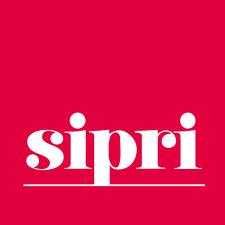|
(Stockholm, 21 September 2017) SIPRI is pleased to celebrate International Day of Peace with the launch of SIPRI Yearbook 2017, now available in print and online.
The Institute’s flagship publication assesses the current state of armaments, disarmament and international security in the world. It significantly expands the analysis of data that was pre-released during the year. In doing so, it adds depth to previous coverage of the global arms trade, world military expenditure and world nuclear forces. In addition, the volume provides insight on the key peace and security issues confronting the world today. Among others, core topics of analysis include the latest trends in nuclear disarmament and non-proliferation, forced displacement in fragile contexts, and the sustaining peace framework of the United Nations.

Nuclear disarmament and non-proliferation: a year of progress
The year 2016 could mark an important shift in the dynamic of negotiations on nuclear disarmament and non-proliferation. SIPRI Yearbook 2017 provides detailed insight on the major events of the year, including the adoption by the United Nations General Assembly of a resolution mandating negotiations in 2017 leading to the elimination of nuclear weapons. The resolution was based on a report prepared by the Open-ended Working Group on nuclear disarmament, which recommended that the UN convene an international conference in 2017 (open to all states) to begin negotiations on a legally binding prohibition of nuclear weapons, leading towards their elimination.
The UN General Assembly and the First Committee also voted to establish a high-level preparatory group to meet in Geneva for two sessions of two weeks each, the first in 2017 and the second in 2018, to consider and make recommendations on substantial elements of a future non-discriminatory, multilateral, and internationally and effectively verifiable treaty banning the production of fissile material for nuclear weapons or other nuclear explosive devices.
‘Recent steps in the nuclear disarmament field are encouraging’, says Shannon Kile, Head of the Nuclear Weapons Project at SIPRI. ‘The groundwork laid in 2016 has been built on in 2017, with 122 states approving the Treaty on the Prohibition of Nuclear Weapons at the UN in July 2017’, says Kile. ‘The so-called ban treaty is potentially an important milestone on a long-term path towards nuclear disarmament.’
Other timely Yearbook topics: forced displacement and the sustaining peace framework
SIPRI Yearbook 2017 examines one of the main security issues currently facing the international community: forced displacement. In 2016 forced displacement continued to be a major challenge to human security, most notably in Africa and the Middle East, which together currently host over two-thirds of the world’s displaced population. In recent years the number of forcefully displaced persons—over 60 million—has increased significantly in comparison with, for example, population growth or general migration. This rise has been caused by new displacement crises (such as those in South Sudan and Yemen) coupled with protracted crises (such as those in Afghanistan and Syria) and the low number of returnees. The clear majority of these displacement crises were generated primarily by armed conflicts. To find out more, read the sample chapter ‘Coping with crises: forced displacement in fragile contexts’.
SIPRI Yearbook 2017 also discusses the new UN frameworks for both sustainable development and sustaining peace. The authors argue that while the concept of conflict prevention remains mostly aspirational, several developments in 2016—such as the World Humanitarian Summit, the Sendai Framework, the Global Partnership for Preparedness, and the Global Alliance for Urban Crises—can be interpreted as investments in sustaining peace and possible paths for positive peace. To find out more, read the sample chapter ‘Sustaining peace and sustainable development in dangerous places’.
The SIPRI Yearbook: an authoritative source on emerging security issues
This 48th edition of the Yearbook follows the book’s esteemed tradition of identifying and analysing the current trends relating to armaments and disarmament. It features chapters on the conflicts in the Middle East and North Africa, the latest developments in European security—including an update on Turkey—and peace processes and patterns of armed conflict. SIPRI Yearbook 2017 also explores some of the emerging topics of global security, such as women, peace and security as well as the links between climate change and violent conflict.
‘In an environment of increasing misinformation, I am proud that SIPRI—now for almost 50 years–offers this go-to reference for full transparency and credible analysis’, says Dan Smith, Director of SIPRI.
The SIPRI Yearbook is a compendium of cutting-edge information and analysis on developments in armaments, disarmament and international security. Four major Yearbook data sets were pre-launched: The Top 100 arms-producing companies (5 December 2016), international arms transfers (20 February 2017), world military expenditure data (24 April 2017) and world nuclear forces (3 July 2017). The SIPRI Yearbook is published by Oxford University Press. Learn more at www.sipriyearbook.org.
Stockholm International Peace Research Institute (SIPRI)
SIPRI is an independent international institute dedicated to research into conflict, armaments, arms control and disarmament. Established in 1966, SIPRI provides data, analysis and recommendations, based on open sources, to policymakers, researchers, media and the interested public. SIPRI is named as one of the world’s leading think tanks according to the international ‘Think Tank Index’.
www.sipri.org
|